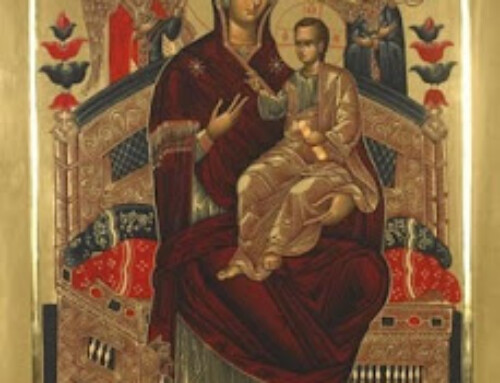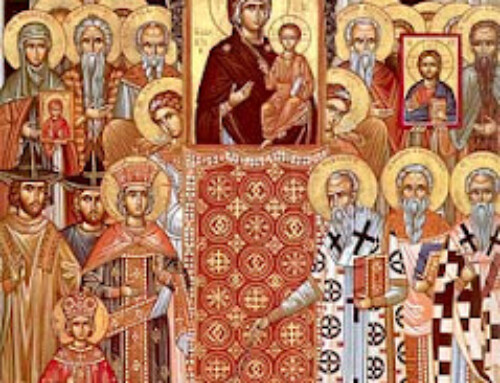Word Magazine February 1994 Page 18
CHRISTIAN EDUCATION TURNS
TO THE HOME FOR HELP
By Robert Snyder
Julie Barnheiser had a touch case — a boy about to be expelled from the first grade. His behavior was as bad and he missed many days of school. Barnheiser decided to look into the matter. At the boy’s home, she found hard-working Mexican-born parents. The boy was loaded down with household chores and responsibilities. Occasionally, his parents kept him out of school to translate for them. The teacher convinced the parents to attend school-sponsored English parenting, and counseling classes. The boy’s response was immediate “like night and day.” He is now a third grader and receives “all kinds of awards.”
All across the country, schools facing the challenge to improve academic performance are turning to the home. Research has long shown that involving parents in their children’s education has positive results. Parental involvement in budgeting, programming, and personnel has been a key element in the success of school on all levels.
Ed Foglia, President of the California Teacher’s Associations, says: “Everybody is starting to say, the institution that has changed more than any other in the last quarter century is the home. It is the one we have to address in the 1990’s.” He added: “Almost every report nationwide talks about parents being involved.”1
The movement toward parental involvement in children’s academics is just as important in our children’s moral and spiritual education. Psychologically and spiritually, the family is the child’s primary world. From the beginning of civilization, the family has been the basic biological unit for communicating cultural and spiritual values. It is this “love” of humankind discovered and realized in the relation among family members that becomes the foundation for our love of God. Christian education thus becomes primarily a translator of familial love to a love of the “family” of God. In Christ’s teachings it is significant that the family unit plays an important role in shaping images of God’s love and Christian values from an abstraction to something concrete. God is referred to as “Our Father.” One of Jesus’ most poignant parables of God and His love for us is contained in the parable of the “prodigal son.” Mary the Mother of God presents us with another important role model of nurturing and selfless love.
We, as Christian educators, have continued to ignore the family as the primary building block of Christian values in favor of presenting facts, traditions and information that the child has no immediate use for, assuming all is well at home and that love and nurturing are taking
place. We cannot continue to make those assumptions. We cannot continue to present a one dimensional Christian education with facts and figures and ignore the feelings, emotions, and personality being shaped at home. Henry Marrou has written:
“Christian education of children, through which they learn to share in the treasury of the faith, to submit to a healthy discipline in the matters of morals, was the parents’ fundamental duty. There was more as this was contained in the Roman Tradition: It was essentially a continuation of the Jewish tradition, which emphasized the importance of family in the development of religious consciousness. And this duty could not be delegated: the early Church would have had sharp words to say about “Christian” parents of today who think they have done all that is required of them when they have passed their children to a teacher of institution.”
Sociological studies reaffirm the importance of family influence in the shaping of future religious life. Potvin, Hoge and Nelson wrote in a study for Boys’ Town Center for the Study of Youth Development: “The most important predictors of religiosity as measured by these indices (religious behavior) are parental religious practice and whether or not the adolescent is currently studying religion: nonetheless these appear to be no substitute for a religious home environment if adolescents are to remain committed to their religious heritage.”2
What is needed in Christian education is a holistic approach with the focus on the family as part of the church and society. No program for children or teens should be planned in the parish without the support of the parent. Their being informed of what you are attempting to do goes a long way toward reinforcing the program itself. Adults learning from their relationships with their children and children learning about God from their relationships with adults strengthen the learning experience and the depth and quality of religious life. In this systems approach the family must be treated as a unit and education programs oriented for family units. We do not expect the family centered education to be one of parents’ taking over the role of Church school teacher by passing on catechetical information; but, one of the pre-theological formations providing an environment of trust, love, identity as a Christian and sense of intimacy and community. In this way, we can join with God in shaping and creating men and women who are open to God’s love and grace.
Let us all recommit ourselves to the vows promised at the baptism of our children, taking a strong and responsible role in the Christian environment we provide for our children and in their spiritual education. Let us also formulate programs and vehicles to train the adult members of our parishes in Christian parenting.
Bob Snyder is a member of the Department of Christian Education of the Antiochian Archdiocese.
1 “Educators Turn to the Homefront for Help,” Los Angeles Times, as cited in the Cleveland Plain Dealer.
2 Dr. John Boojamra, Foundations of Christian Education, Crestwood, NY, St. Vladimir’s Seminary Press, 1989.




